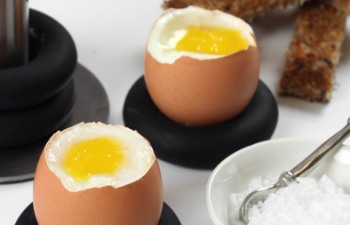Have you ever heard of choline? Did you know that it is a vital nutrient, particularly during pregnancy and the first 4 years of a baby’s life? Did you know that adequate choline intakes during pregnancy can reduce the risk of your daughters developing breast cancer when they grow up?
I expect that many members of the South African public will not have heard of choline and the important role it plays in good health.
Classic Health Programme
Last month I happened to be listening to Classic Health on Classic fm 102.7, which is presented by Karen Appelbaum, and I was fascinated to hear her two specialist guests discuss how important choline is in the prevention of cancer. Dr Devan Moodley, a South African Specialist Oncologist, and Dr Donald McNamara, a Nutrition Specialist from the USA, were discussing how various cancers could be prevented.
Among other interesting facts, the doctors mentioned that choline, a previously neglected nutrient, has recently been identified as a dietary factor that can reduce the incidence of breast cancer. Research with experimental animals found that if pregnant mother animals were fed a choline-rich diet, their daughters were significantly less likely to develop breast cancer even when they were exposed to breast cancer-inducing carcinogens, than the female offspring of mothers fed a choline-deficient diet.
Dr McNamara also stated that studies in the USA and China with human subjects have found that the incidence of breast cancer can be reduced by 24% if women eat a diet rich in choline (Classic Health, 2011).
So, choline, which was only officially recognised as “an essential nutrient by the Institute of Medicine in 1998", is proving to be much more important to human health than previously believed (Zeisel & Da Costa, 2009). The recognition of it role as an essential nutrient is mirrored in the specification that all infant formulas must nowadays contain choline.
Functions of choline
Choline plays a role in many different processes in the human body, for example:
- It is essential for synthesising chemicals, such as acetylcholine, which are used to transmit nerve signals
- Choline is also involved in cell-membrane signalling
- Choline assists with the transport of fats or lipids (lipoproteins)
- It reduces the level of harmful homocysteine (which is linked to heart disease)
- It regulates metabolic pathways
- Choline is important for detoxification and prevention of fatty liver disease
- It plays a vital role in brain development in the womb and for the first 4 years of life, particularly memory development, and choline may slow down memory loss in old age
- Together with folic acid, choline helps to prevent neural tube defects
- It modulates neonatal imprinting (i.e. it shuts off foetal genes that would make the child susceptible to environmental carcinogens and thus lowers the risk of developing cancer in later life)
(Zeisel & Da Costa, 2009; Classic Health, 2011)
It is evident, that choline, is absolutely vital for our health and well-being before and after birth and throughout life.
Sources of choline
Although human beings are capable of synthesising choline, we unfortunately do not manufacture enough choline to meet our needs and are, therefore, dependent on dietary sources of this nutrient.
The best sources of choline in the human diet are:
- Egg yolk (340 mg/50g)
- Beef and chicken liver (247 mg/90g)
- Soy flour, defatted (201 mg/cup)
- Salmon (187 mg/90g)
- Eggs, whole (125 mg/egg)
- Quinoa (60 mg/ ½ cup)
- Chicken (56 mg/90g)
- Wheat germ (50 mg/30g or 2 Tablespoons)
- Milk (38 mg/cup)
(Zeisel & Da Costa, 2009)
According to Dr McNamara (Classic Health, 2011), eating eggs which represent what is probably the most accessible source of choline in the human diet, has been drastically reduced thanks to the dietary advice to avoid high cholesterol intakes to prevent heart disease.
Dr McNamara pointed out that by reducing our egg intake to reduce cholesterol intake, humans are now depriving themselves of a vital nutrient in the form of choline, a lack of which can cause other diseases such as breast cancer, fatty liver and memory deterioration.
He reported that the authorities in the UK, New Zealand, Canada and Australia have lifted the ban on egg intake and are now going so far as to recommend that we should eat an egg a day. This turnaround in thinking, was brought about by a major study involving 117 000 men and women, which found that the risk of developing heart disease was identical in those individuals who ate only 1 egg per week compared to subjects who ate 7 eggs per week (Classic Health, 2011).
Choline deficiency
Studies conducted in the USA have shown that choline intakes in men, women and children of all ages are far below the recommended daily intakes. Dr McNamara mentioned that only 1 out of 10 women in the USA, has an adequate intake of choline (Classic Health, 2011).
An important factor that affects choline requirements is genetic variation. Research indicates that up to 50% of the American population may have so-called genetic polymorphism which increases their requirement for choline. What effect genetic polymorphism may have on choline requirements in South Africa, has not yet been established, but it is not unrealistic to believe that our population may also exhibit such variations in need for choline and that our diets may also be just as, if not more deficient in choline as the American diet (Zeisel & Da Costa, 2009).
How much choline do we need?
The recommended intakes of choline established by the Institute of Medicine in the USA, are as follows:
Recommended intake in mg choline/day
- 425 mg - women aged 19 years and older
- 550 mg - men aged 19 years and older
- 450 mg - pregnant women
- 550 mg - breastfeeding women
(Zeisel & Da Costa, 2009).
Before you pop a choline pill
By now, I can imagine that most readers are about to rush out to their pharmacy or health shop to buy a choline supplement, but as Drs Moodley and McNamara on the Classic Health (2011) programme cautioned, popping pills to obtain vital nutrients like choline, can never take the place of eating a diet that is rich in such nutrients. You need to eat whole foods which contain a wide variety of other nutrients which will help you absorb the nutrient in question and ensure that the body obtains the maximum benefit.
To illustrate this point, Dr McNamara pointed out that if you compare the bioavailability of lutein (an anticancer nutrient, which also helps to prevent deterioration of vision) in pills with the lutein in cooked spinach and cooked eggs, the lutein in cooked spinach is 2 X more bioavailable and the lutein in cooked eggs is 3 X more bioavailable than the lutein in the pill (Classic Health, 2011).
Zeisel and Da Costa (2009) emphasise how important it is for us to become more aware of choline, “an essential, but currently suboptimal nutrient, and further, to highlight the critical role it plays throughout life, especially in pregnant and lactating women.”
So let’s all make choline our priority by eating more liver and eggs, salmon, soy products and wheat germ.
- (Dr IV van Heerden, DietDoc, March 2011)
References:
(Classic Health (2011). Oncology. Broadcast on 17 February 2011 featuring Dr D Moodley & Dr D McNamara. Presented by K. Appelbaum. Classic fm 102.7 FM; Zeisel SH, Da Costa K-A (2009).Choline: An essential nutrient for public health. Nutrition Reviews, Vol 67(11):615-623)
Any questions? Ask DietDoc
Read more:
The benefits of good nutrition
10 health benefits of eggs
Nutrition during pregnancy
Sign up for our weekly healthy eating tip here




 Publications
Publications
 Partners
Partners











